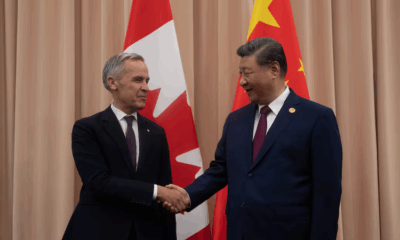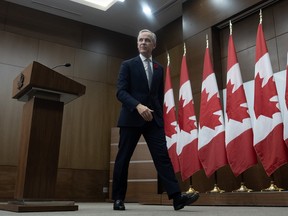Top Stories
EU Faces Urgent Decision on Russian Oil Amid Trump’s Sanction Push

BREAKING: The European Union is in urgent discussions regarding new sanctions targeting companies in India and China that facilitate Russia’s oil trade. This comes as US President Donald Trump has announced he is ready to impose “major” sanctions on Russian oil if European nations align their actions.
The stakes are incredibly high as the EU deliberates this critical move, which could significantly impact the energy trade financing President Vladimir Putin’s ongoing war in Ukraine. The proposed penalties are part of a looming sanctions package, reported by Bloomberg, that may include measures against several Russian banks and energy companies.
Currently, crude oil imports from Russia have dramatically fallen to just around 3% of EU imports from a staggering 27% before the onset of the conflict, following previous sanctions initiated in 2022. This latest development underscores the EU’s challenging position, especially as it has previously delayed phasing out Russian gas until after 2027. Countries like Hungary and Slovakia have received temporary exemptions, complicating the EU’s response.
The US is pushing for tariffs as steep as 100% on oil imports from China and India, targeting the networks that enable Russia to profit from its oil trade. Such measures would align the EU against Beijing, a move that could strain relations given Europe’s dependence on the Asian market amidst ongoing trade negotiations with India.
Key EU leaders are grappling with internal resistance, particularly from Hungary and Slovakia, who are concerned about the economic impact of transitioning to alternative oil supplies. As Hungary navigates its reliance on Russian energy, the challenges become more pronounced, especially after signing a deal with Shell Plc for natural gas that may fall short of actual needs.
Trump’s sanctions proposal places Hungarian Prime Minister Viktor Orban in a difficult position. Orban has increased Russian energy imports since the invasion, relying on exemptions that may soon be up for reconsideration. Meanwhile, Hungary is exploring energy diversification options, including a recent agreement for gas from Azerbaijan and oil imports via a pipeline through Croatia.
The EU’s 19th sanctions package, a critical component of this strategy, is expected to target Russian payment systems and crypto exchanges, alongside further restrictions on oil trade. This urgent situation emphasizes the pressure on European nations to act decisively in response to Trump’s call for a unified front against Russia.
As negotiations unfold, the implications for energy security in Europe remain uncertain. Analysts suggest that the EU must navigate this geopolitical landscape carefully to avoid exacerbating tensions with major trade partners, particularly with China and India.
In a race against time, the EU’s upcoming decisions could have far-reaching consequences, not just for energy markets but also for the broader geopolitical climate. As this situation continues to develop, all eyes will be on Brussels for further updates on the sanctions package and its potential impact on European energy policy.
-

 World4 months ago
World4 months agoScientists Unearth Ancient Antarctic Ice to Unlock Climate Secrets
-

 Entertainment4 months ago
Entertainment4 months agoTrump and McCormick to Announce $70 Billion Energy Investments
-

 Lifestyle4 months ago
Lifestyle4 months agoTransLink Launches Food Truck Program to Boost Revenue in Vancouver
-

 Science4 months ago
Science4 months agoFour Astronauts Return to Earth After International Space Station Mission
-

 Technology2 months ago
Technology2 months agoApple Notes Enhances Functionality with Markdown Support in macOS 26
-

 Top Stories3 weeks ago
Top Stories3 weeks agoUrgent Update: Fatal Crash on Highway 99 Claims Life of Pitt Meadows Man
-

 Sports4 months ago
Sports4 months agoSearch Underway for Missing Hunter Amid Hokkaido Bear Emergency
-

 Politics3 months ago
Politics3 months agoUkrainian Tennis Star Elina Svitolina Faces Death Threats Online
-

 Politics4 months ago
Politics4 months agoCarney Engages First Nations Leaders at Development Law Summit
-

 Technology4 months ago
Technology4 months agoFrosthaven Launches Early Access on July 31, 2025
-

 Top Stories1 week ago
Top Stories1 week agoFamily Remembers Beverley Rowbotham 25 Years After Murder
-

 Entertainment4 months ago
Entertainment4 months agoCalgary Theatre Troupe Revives Magic at Winnipeg Fringe Festival




















